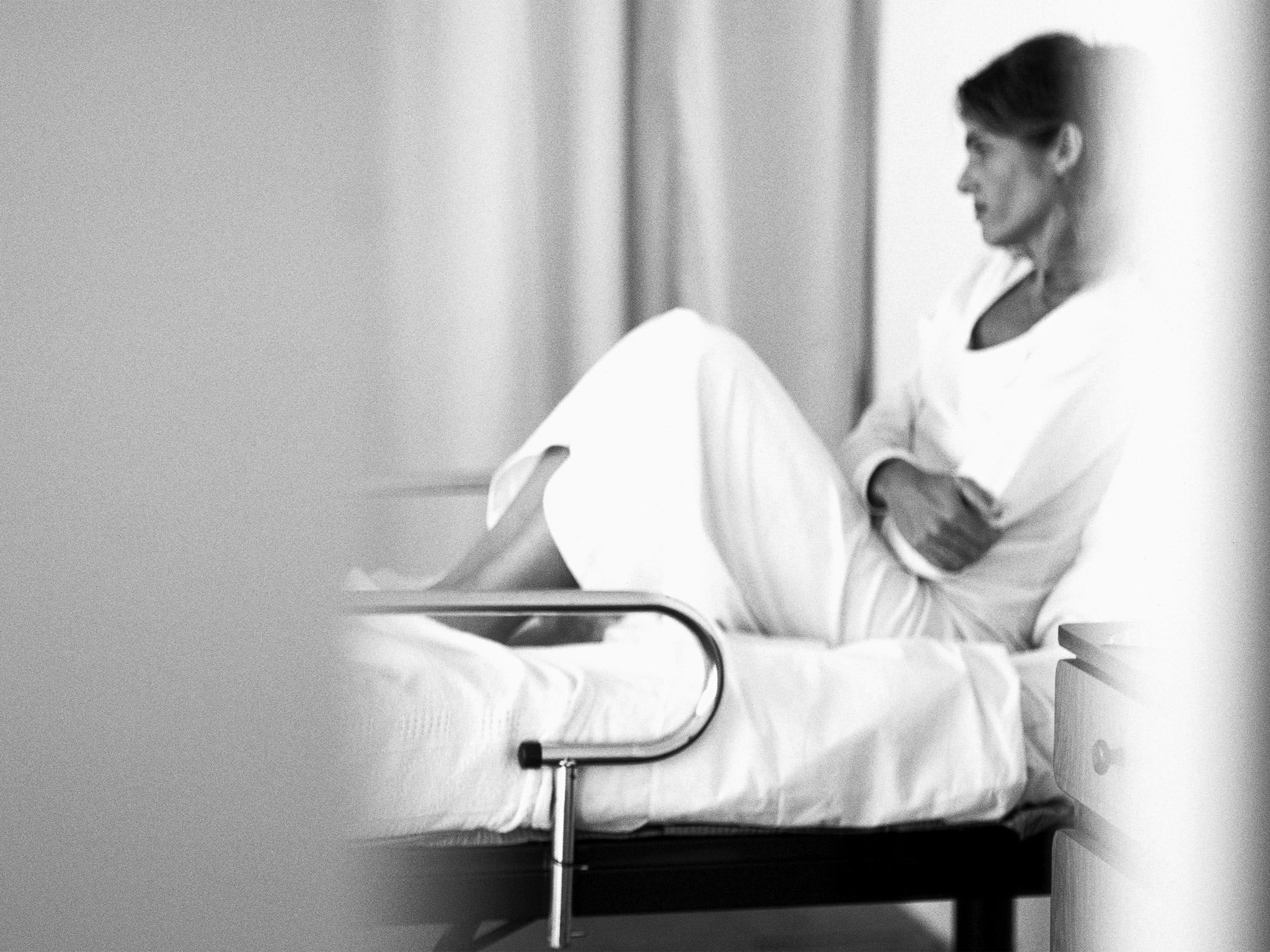‘You lose your human rights’: Mental Health Act usage up by 12%
‘When you are sectioned...you lose your human rights’, warns patients Kelly from Surrey

Your support helps us to tell the story
From reproductive rights to climate change to Big Tech, The Independent is on the ground when the story is developing. Whether it's investigating the financials of Elon Musk's pro-Trump PAC or producing our latest documentary, 'The A Word', which shines a light on the American women fighting for reproductive rights, we know how important it is to parse out the facts from the messaging.
At such a critical moment in US history, we need reporters on the ground. Your donation allows us to keep sending journalists to speak to both sides of the story.
The Independent is trusted by Americans across the entire political spectrum. And unlike many other quality news outlets, we choose not to lock Americans out of our reporting and analysis with paywalls. We believe quality journalism should be available to everyone, paid for by those who can afford it.
Your support makes all the difference.“When you’re sectioned under the Mental Health Act, you not only lose your voice, but you lose your human rights too”, Kelly a 47-year-old from Surrey tells The Independent.
After experiencing a mental health crisis in 2019, Kelly was subject to a “traumatic” detention under the Mental Health Act, during which she says she was “criminalised” for being unwell.
Kelly’s story comes as a new analysis of NHS data has revealed the number of people detained under the Mental Health Act increased by 12 per cent in December 2021 compared to the 12 months prior.
Major charity Mind, which carried out the analysis, has called for promised reforms to the Mental Health Act to be implemented after recommendations following a major review published in 2019.
According to the analysis, the number of people subject to detention under the mental health act increased from, 10,760 in December 2020 to 12,013 December 2021.
Speaking with The Independent Kelly, who has had several experiences of being detained under the Mental Health Act, described her most recent experience in 2019 as “very traumatic.”
She said: “I had a very public breakdown near where I live. I had neighbours on the phone to the ambulance, and I had, you know, warrants for a psychiatrist or social worker and to enter my property. To have people invade your privacy like that, and to have a warrant to enter property, it’s almost like they’re criminalising you because you’re unwell.
After being admitted Kelly was later “discharged too early” and then had to undergo another formal section where she described staff as “manhandling” her.
“They were dragging me, six of them, you know, there was one guy at the back of me and my trousers were actually falling down, and he tried to pull them up and then like the ones at the side of me and my top was up so you could see my breasts. They then just put you in a room and leave you there to calm down.”
Charity Mind are calling for promised reforms to the Mental Health Act to take place including ending of community treatment orders, which compel people for treatment who are living in the community as opposed to those detained within inpatient units.
According to Mind’s analysis of the most recent NHS data, the number of people subject to a Community Treatment Order also increased by to 2,111 in December compared to 1,878 in December 2020.
However, overall the use of CTOs went down slightly from 5,709 to 4,943 in 2020-21 compared to previous years.
Data published by NHS England shows use of the section 136 of the Mental Health Act, which is used by police to detained people, was 8 per cent higher from July to September 2021 compared to the same period in 2020. Compared to 2019 the use of section 136 was 10 per cent higher over this period.
Rheian Davies, head of legal at Mental Health Charity Mind said: “A recent worrying rise in detentions further confirms the urgent need for fully funded reform of the Mental Health Act, to make sure anyone who is experiencing a mental health crisis and is a risk to themselves is treated in a safe and therapeutic environment. NHS data showed that nearly 5000 people were given a community treatment order (CTO) in December 2020.
“Structural racism continues to pervade the Mental Health Act. Black and Black British people are still far more likely to be detained under the Act, restrained against their will, and be more likely to be re-admitted to hospital without getting the right support. When someone is experiencing a mental health crisis, they may be suicidal, self-harming, or in psychosis, and feeling very frightened or distressed. At the very least, their loved ones should expect that they will be kept safe, treated with dignity, and receive the care they need by the services which are designed to protect them.”
Join our commenting forum
Join thought-provoking conversations, follow other Independent readers and see their replies
0Comments